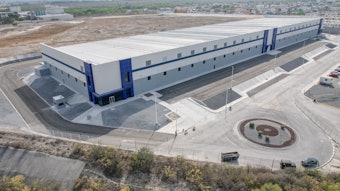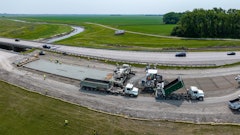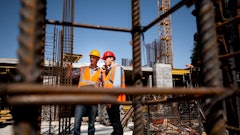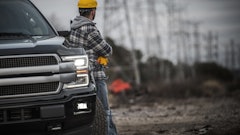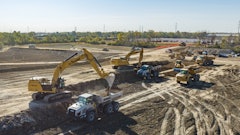
Running background checks for construction workers has never been a more straightforward process, and 2024 will certainly be no exception. Employers across the country will continue to face an ever-changing landscape of laws and regulations that will require both vigilance and foresight to navigate with confidence.
Proceeding without attentiveness and care is likely to result in complications for even the most compliant of yesteryear’s policies; it is now, as always, in every construction firm’s best interest to remain thoroughly informed about the latest developments in background check legislation.
While monitoring such developments is an ongoing task, the five trends listed below are indications of where employers ought to be looking as they approach the threshold of 2024. These are the key areas that show signs of significant change in the coming months, and which are likely to have noteworthy impacts on the background screening process.
Keeping a close eye on these trends will not only safeguard construction firms from being blindsided with liabilities, but will provide them with direction as they build their plan and adapt their background check policies for the new year to come.
1. Marijuana Screening to Become More Stringent
While this may not come as a surprise, increasing regulations on marijuana screening will remain a strong trend for 2024. As more and more states legalize recreational use, with Minnesota and Ohio being the most recent, regulations on testing for, inquiring about, and considering marijuana usage for employment will no doubt follow suit.
States where such changes have already taken place are also likely to implement new, more progressive regulations. States such as California and Washington saw new laws come into effect on Jan. 1 restricting employers from considering pre-employment records of use, including criminal records in California, as well as any off-duty use. The trendline shows that other states may very well follow in their footsteps.
2. FCRA to Receive an Update
The federal government, via the Consumer Financial Protection Bureau (CFPB), is in an ongoing process of updating the Fair Credit Reporting Act (FCRA), a cornerstone law that governs employment background checks. Among the more recent changes was a 2023 amendment to the Final Rule of the Summary of Rights.
While these alterations may seem minor at first glance, ranging from terminology changes to simply updating contact information, the early 2024 compliance date means that employers must adhere to and — more significantly — provide certain candidates with the revised version. Being mindful of this change and any changes that may follow is an essential measure for construction firms who wish to avoid any risk of litigation.
3. Privacy Regulations to Increase
The varied restrictions on marijuana screening discussed in trend No. 1 are but a single example of the highly disparate laws that govern background checks across state lines, with privacy regulations serving as another notable instance. Since no federal privacy act exists currently, legislation on the matter varies widely from state to state.
2024 will see that particular problem become even more complex, as the states of Washington, Texas, Oregon, Florida, and Montana are all set to implement new privacy laws that will limit the use of human resource data. These laws will affect how construction firms collect, store, and use employee information. As the year progresses, therefore, many companies may need to adapt to these changes and revise how such information is used.
4. Disparate Court Interpretations to Continue
Court decisions create precedent, naturally, and are therefore worth the attention of any employer. This is especially true in light of increasingly disparate interpretations by local and federal courts of existing laws that govern how background checks may be carried out by employers.
One significant instance of such disparate interpretation is the FCRA legislation that requires authorization from a current worker or a job candidate before employers can take certain actions within the screening process. Court decisions on this issue have been subject to change over time and place, leaving employers in uncertain positions about exactly what permissions they need or do not need to be granted. In that case and others, construction firms are advised to heed the latest local and federal verdicts.
5. AI Usage to be Regulated
As the use of artificial intelligence (AI) for efficient hiring becomes more of a common practice, state legislators are introducing regulations aimed at protecting applicants and workers from discriminatory software. These laws have the ability to limit the use of “decision-making” AI in particular by providing guidelines for what AI can consider when furthering or denying an application.
Certain states, such as New York, have already put regulations in place that require any such decision-making tools used in human resources to undergo a bias audit. As AI remains a relatively new territory, construction firms will do well to be especially attentive to legal developments in this rapidly growing area.
Looking Ahead: Navigating the Legal Landscape
2024 is bound to see some dramatic changes in the legal scene for firms across the country. What that scene will look like a year from now can only be speculated, but the five trends discussed above: relaxed marijuana laws, an updated FCRA, increased privacy regulations, continued disparate court interpretations, and regulated AI use offer a crucial starting point for firms to stay informed and prepared for adaptation.
Bottom line: 2024 is shaping up to be a pivotal year for employment screening, specifically in the construction industry. By keeping a finger on the pulse of these indicators, construction firms will be able to follow the developments of the coming year as they unfurl. Those who do so, and those who proactively adapt along the way, will screen and hire with full confidence that the law, in all its complexity and caprice, is on their side.

